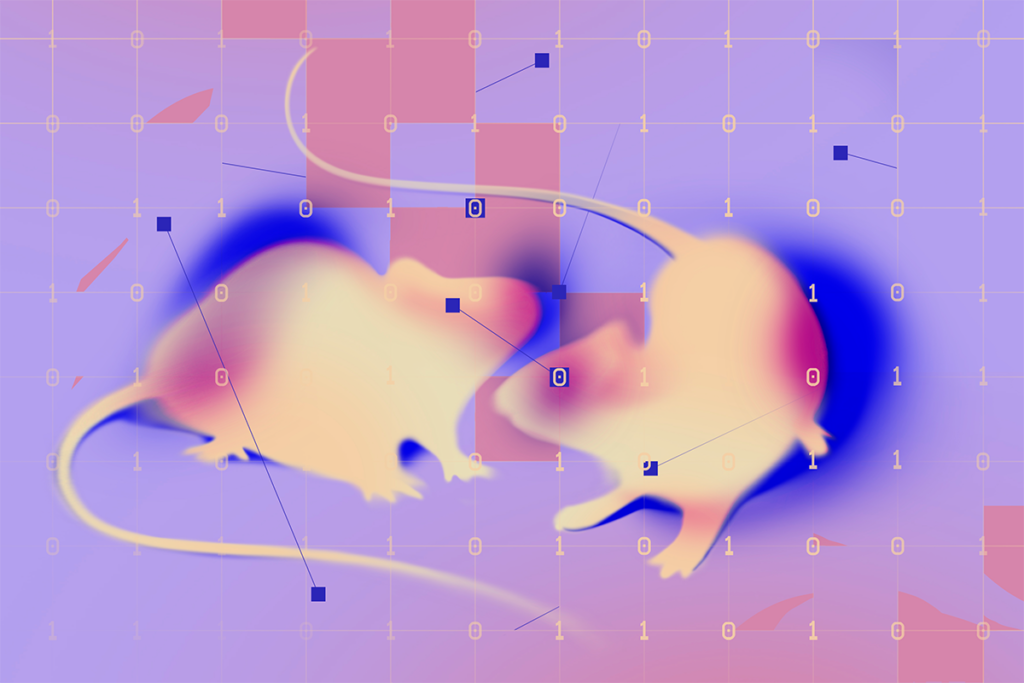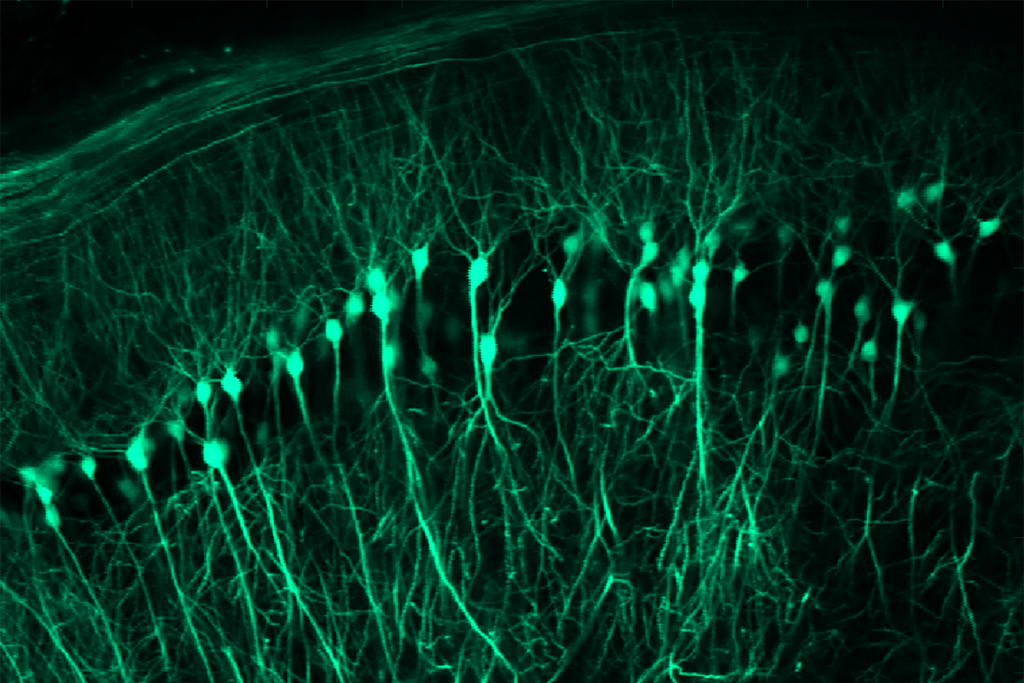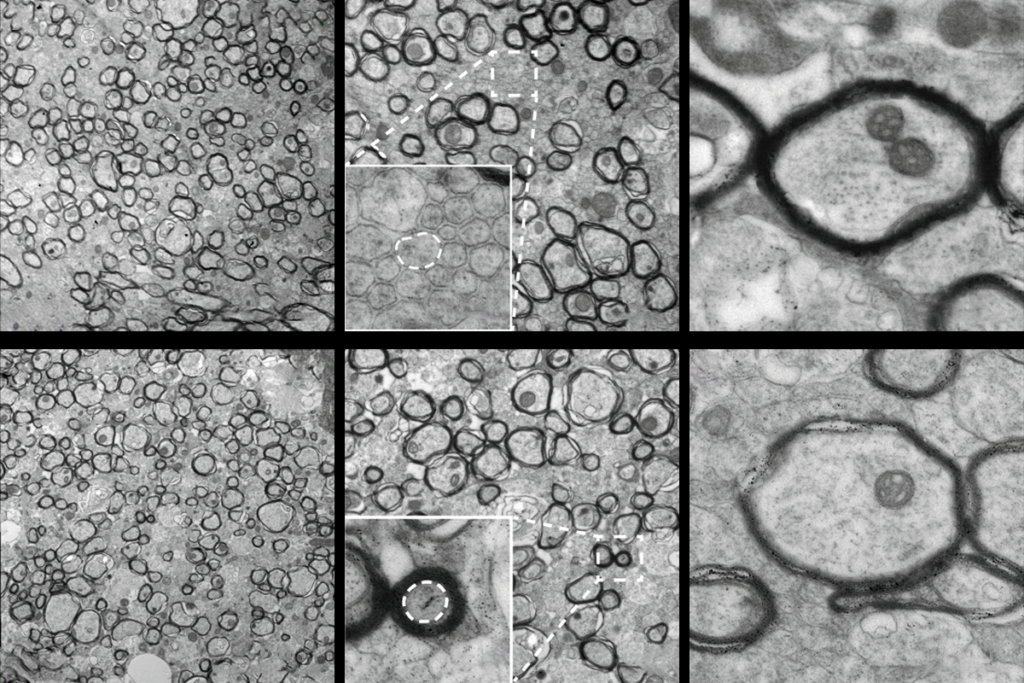Hippocampus
Recent articles
Microglia implicated in infantile amnesia
The glial cells could explain the link between maternal immune activation and autism-like behaviors in mice.

Microglia implicated in infantile amnesia
The glial cells could explain the link between maternal immune activation and autism-like behaviors in mice.
How artificial agents can help us understand social recognition
Neuroscience is chasing the complexity of social behavior, yet we have not answered the simplest question in the chain: How does a brain know “who is who”? Emerging multi-agent artificial intelligence may help accelerate our understanding of this fundamental computation.

How artificial agents can help us understand social recognition
Neuroscience is chasing the complexity of social behavior, yet we have not answered the simplest question in the chain: How does a brain know “who is who”? Emerging multi-agent artificial intelligence may help accelerate our understanding of this fundamental computation.
Snoozing dragons stir up ancient evidence of sleep’s dual nature
Deep-sleep cycling between brain waves of higher and lower amplitude dates far back on the evolutionary tree, according to a new comparative study of mammals and reptiles.
Snoozing dragons stir up ancient evidence of sleep’s dual nature
Deep-sleep cycling between brain waves of higher and lower amplitude dates far back on the evolutionary tree, according to a new comparative study of mammals and reptiles.
What are the most-cited neuroscience papers from the past 30 years?
Highly cited papers reflect the surge in artificial-intelligence research in the field and other technical advances, plus prizewinning work on analgesics, the fusiform face area and ion channels.

What are the most-cited neuroscience papers from the past 30 years?
Highly cited papers reflect the surge in artificial-intelligence research in the field and other technical advances, plus prizewinning work on analgesics, the fusiform face area and ion channels.
The buzziest neuroscience papers of 2023, 2024
The field took note of work on brain-computer interfaces for speech, the mechanism of psychedelics, a broader definition of hippocampal representations, and more.

The buzziest neuroscience papers of 2023, 2024
The field took note of work on brain-computer interfaces for speech, the mechanism of psychedelics, a broader definition of hippocampal representations, and more.
‘How to Change a Memory: One Neuroscientist’s Quest to Alter the Past,’ an excerpt
Part scientific exploration, part memoir, Steve Ramirez’s new book delves into the study of memory manipulation and his personal journey of discovery, friendship and grief.

‘How to Change a Memory: One Neuroscientist’s Quest to Alter the Past,’ an excerpt
Part scientific exploration, part memoir, Steve Ramirez’s new book delves into the study of memory manipulation and his personal journey of discovery, friendship and grief.
Machine learning spots neural progenitors in adult human brains
But the finding has not settled the long-standing debate over the existence and extent of neurogenesis during adulthood, says Yale University neuroscientist Juan Arellano.

Machine learning spots neural progenitors in adult human brains
But the finding has not settled the long-standing debate over the existence and extent of neurogenesis during adulthood, says Yale University neuroscientist Juan Arellano.
Spatial learning circuitry fluctuates in step with estrous cycle in mice
Cyclic shifts in estradiol levels coincide with changes in dendritic spine density and the activity of place cells in the CA1 region of the hippocampus, a new study shows.

Spatial learning circuitry fluctuates in step with estrous cycle in mice
Cyclic shifts in estradiol levels coincide with changes in dendritic spine density and the activity of place cells in the CA1 region of the hippocampus, a new study shows.
Expanded view of hippocampal function comes into focus
After decades of debate, the region’s role is being rewritten. Rather than using sensory input to simply log key points in time and space, the hippocampus may serve to contextualize our experiences and memories—and ultimately make predictions about the future.
Expanded view of hippocampal function comes into focus
After decades of debate, the region’s role is being rewritten. Rather than using sensory input to simply log key points in time and space, the hippocampus may serve to contextualize our experiences and memories—and ultimately make predictions about the future.
Gazing at a location from afar activates place cells in chickadees
The results help explain how the hippocampus can recall information about a place without an animal physically revisiting it.

Gazing at a location from afar activates place cells in chickadees
The results help explain how the hippocampus can recall information about a place without an animal physically revisiting it.
Explore more from The Transmitter
This paper changed my life: Ishmail Abdus-Saboor on balancing the study of pain and pleasure
A 2013 Nature paper from David Anderson’s lab revealed a group of sensory neurons involved in pleasurable touch and led Abdus-Saboor down a new research path.

This paper changed my life: Ishmail Abdus-Saboor on balancing the study of pain and pleasure
A 2013 Nature paper from David Anderson’s lab revealed a group of sensory neurons involved in pleasurable touch and led Abdus-Saboor down a new research path.
Sex bias in autism drops as age at diagnosis rises
The disparity begins to level out after age 10, raising questions about why so many autistic girls go undiagnosed earlier in childhood.

Sex bias in autism drops as age at diagnosis rises
The disparity begins to level out after age 10, raising questions about why so many autistic girls go undiagnosed earlier in childhood.
Oligodendrocytes need mechanical cues to myelinate axons correctly
Without the mechanosensor TMEM63A, the cells cannot deposit the appropriate amount of insulation, according to a new study.

Oligodendrocytes need mechanical cues to myelinate axons correctly
Without the mechanosensor TMEM63A, the cells cannot deposit the appropriate amount of insulation, according to a new study.